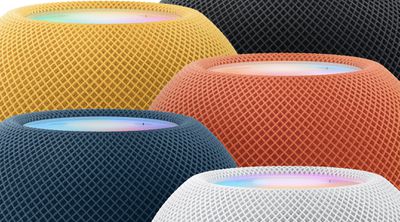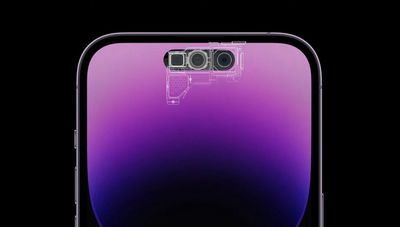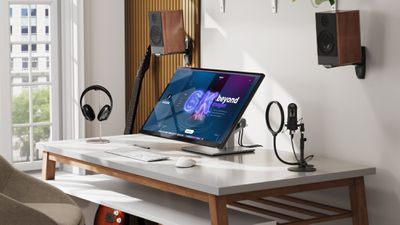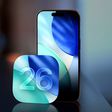Apple is holding its annual iPhone-centric event on Tuesday, September 9 at 10:00 a.m. Pacific Time. This is the biggest Apple event of the year, and we'll see Apple unveiling new iPhones, new Apple Watches, the AirPods Pro 3, and possibly some other surprises.
We've highlighted everything that we're expecting to see at the "Awe Dropping" event based on current rumors.
iPhone 17 Air
Apple is planning to release a super thin iPhone alongside the standard iPhone 17 and iPhone 17 Pro models, and while we don't know what it'll be called just yet, it will mark the biggest design update to the iPhone in almost a decade.
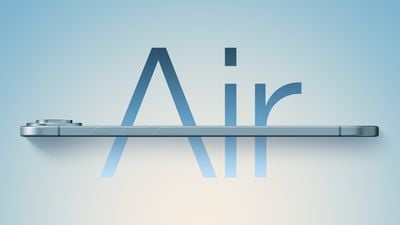
We'll find out Apple's official name for the iPhone soon, but it's become known as the iPhone 17 Air during the rumor cycle. It's a logical choice for the device, since Air often pairs with Pro in Apple's product categories.
The iPhone 17 Air will be around 5.5mm, which means it's going to be more than 2mm thinner than the 7.80mm iPhone 16. It'll be the thinnest iPhone Apple's released to date, though it won't be quite as thin as the 12.9-inch iPad Pro.
There will be a thicker camera area, with Apple adding a pill-shaped horizontal camera bump to accommodate a single-lens 48-megapixel rear camera and flash setup. At the front, there will be a new 24-megapixel selfie camera, an improvement over the 12-megapixel front-facing camera in the current models.

The iPhone 17 Air's display will measure in at 6.6 inches, and there are rumors that all iPhone 17 models could support 120Hz ProMotion refresh rates, meaning that would no longer be a feature only for the Pro models. Apple is upgrading all of the iPhone displays to LTPO OLED technology this year, which is what has led to those rumors, but there's no word on whether always-on display functionality will be supported.
Apple is using a hybrid titanium-aluminum frame for the iPhone 17 Air, and it could weigh somewhere around 145 grams. At 145 grams, the iPhone 17 Air would be just a little heavier than the iPhone 13 mini.
The iPhone 17 Air will have the same A19 chip that's in the iPhone 17, along with a vapor chamber heat sink that will improve thermal performance. It's expected to have 12GB RAM.
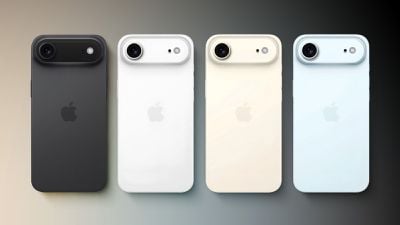
We've heard some rumors about a slimmer Dynamic Island, but that might not happen. The iPhone 17 Air is expected to get other standard iPhone features like MagSafe, Camera Control, and an Action Button.
The iPhone 17 Air will use the same C1 modem chip that Apple debuted in the iPhone 16e, which means it won't support faster mmWave 5G speeds. All iPhone 17 models will use a new Apple-designed Wi-Fi chip with Wi-Fi 7 support, and Apple's own hardware could bring efficiency and connectivity improvements. Apple doesn't have the space for a SIM slot, so the iPhone 17 Air will be eSIM only.
There's not a lot of room inside the iPhone 17 Air for the battery, so battery life might suffer. A leaked image suggests the iPhone 17 Air battery is half as thick as the iPhone 17 Pro battery, and rumors indicate that it'll come in at around 2,800mAh. Apple may be able to improve battery life with the more efficient C1 modem and updated A-series chip.
Read more about Apple's super thin iPhone in our iPhone 17 Air roundup.
iPhone 17 Pro
The iPhone 17 Pro models are getting some updates that will improve durability and change the exterior look of the devices. Rather than a titanium frame, Apple is rumored to be swapping to aluminum, and also doing away with some of the glass at the back.

Rumors suggest the iPhone 17 Pro models will have a half-glass, half aluminum design with a glass area for MagSafe charging. The rest of the iPhone chassis will be aluminum, improving durability because aluminum is much less breakable than glass. With a partial aluminum back, the iPhone 17 Pro models will be much more durable than the iPhone 16 Pro models. The glass area is expected to take up the bottom 2/3rds of the iPhone, and it could result in the Apple logo being shifted lower on the device.
While titanium is seen as a more premium material that can better hold up to scratches, aluminum is lighter and it is better at dissipating heat. There have been ongoing complaints about the iPhone 16's penchant for heating up when under heavy load and when wireless charging.

Apple is redesigning the camera bump, though it's not quite clear why. Rather than a square-shaped bump at the left of the iPhone, there will be a large horizontal bump that takes up nearly the entire width of the device. There will be three lenses arranged in the same triangle shape as the current models, but the flash and LiDAR sensor are shifting over to the right. The antenna lines on the iPhone 17 Pro models could wrap back to the camera bump, and Apple might get rid of the bottom antenna lines.
The iPhone 17 Pro models will come in orange, dark blue, gray, white, and black. Orange is an unusual shade for Apple to choose for the Pro lineup, so it might end up being a more muted copper shade.
As for the display, it's going to look largely the same, but Apple might add a more scratch resistant anti-reflective coating. The coating could be more durable than Ceramic Shield while also cutting down on reflections, but it won't look as dramatic as nano-texture.
The iPhone 17 Pro Max could have Apple's biggest iPhone battery to date, bringing an increase in battery life, and both pro models could be a little thicker to accommodate bigger batteries. Faster 25W Qi 2.2 charging will be supported with compatible accessories, and while there are also rumors of reverse wireless charging for things like AirPods and the Apple Watch, it's not clear if that will actually happen.

TSMC's next-generation A19 Pro chip will power the iPhone 17 Pro models, and it'll be a little faster and more efficient than the A18 Pro. Rumors suggest that Apple is also going to bump up the RAM, with the iPhone 17 Pro and Pro Max set to get 12GB.
The iPhone 17 Pro models will have an updated 48-megapixel Telephoto lens, which means all three lenses will be 48 megapixels for the first time.
Some rumors have suggested the new Telephoto lens will support up to 8x optical zoom, and the Main camera could have a variable aperture system that would allow users to adjust the amount of light that reaches the lens to improve background blur. Apple is planning on a dual video recording feature that uses the front and rear camera simultaneously, and there will be an upgraded 24-megapixel front-facing camera.
More information on the iPhone 17 Pro can be found in our iPhone 17 Pro roundup.
iPhone 17
There are usually two standard iPhone 17 models, but this year, we're limited to one because Apple is eliminating the "Plus" model and replacing it with the ultra thin iPhone.
The iPhone 17 will look like the iPhone 16, but it's getting a bigger display. Instead of 6.1 inches, it'll be 6.3 inches, similar to the iPhone 16 Pro. Color options could include black, white, steel gray, green, purple, and light blue.
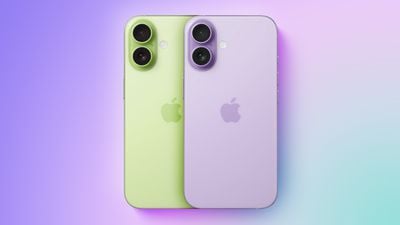
While the iPhone 17 Air and the iPhone 17 Pro models will have a pill-shaped camera bar that spans most of the back of each device, rumors suggest the iPhone 17's camera bump isn't going to change. It will continue to have a dual-lens camera setup with a small vertical pill-shaped bump.
The display might have slimmed down bezels to bring the iPhone 17 in line with the other iPhone models, and rumors suggest that 120Hz ProMotion refresh rates will come to the entire lineup rather than just being limited to the Pro models.
We're expecting the iPhone 17 to be equipped with the standard A19 chip, built on an updated 3-nanometer process. The A19 will bring speed and efficiency improvements compared to the A18, plus Apple is rumored to be using vapor chamber cooling technology to boost thermal performance.
We're not expecting major rear camera upgrades for the iPhone 17, but it will get an updated 24-megapixel front-facing camera. It will also continue to have 48 megapixel Wide and Ultra Wide rear cameras.
Like the other iPhones in the lineup, the iPhone 17 will get Apple's custom-designed Wi-Fi and Bluetooth chip and support for 25W Qi 2.2 charging.
We have more on the iPhone 17 in our iPhone 17 roundup.
Apple Watch Ultra 3
The Apple Watch Ultra 3 will get some of the changes that Apple introduced with the Apple Watch Series 10 last year, including the updated LTPO3 display. With LTPO3, the Series 10 display is 40 percent brighter when viewed at an angle, and minimum brightness drops to 1 nit to allow for an always-on second hand that updates even when the wrist is down.

Apple isn't updating the size of the Ultra 3, but it will have a bigger display. Code found in iOS 26 suggests the display will measure in at 422 x 514 pixels, up from 410 x 502 pixels. The larger display will likely be enabled through a reduction in bezels.
The Apple Watch Ultra 3 is expected to include an updated S11 chip, but the S11 is going to offer the same performance as the S9 and the S10 as it has the same underlying processor technology. Since the current Apple Watch Ultra uses the S9, there may not be much in the way of performance improvements.
While the chip is basically the same, the S11 could be smaller overall, allowing for more internal space to be dedicated to the battery and other components.
The Apple Watch Ultra 3 will be Apple's first watch with satellite connectivity, enabling satellite-based texting and an Emergency SOS feature that can be used when there's no cellular or Wi-Fi connectivity available.
Apple has been working on blood pressure monitoring technology, and it may or may not be ready to debut in 2025 Apple Watch models. It's still not yet clear if it's coming this year because of development issues, but if it does, it will be more limited than standard blood pressure monitoring devices.
The feature won't provide specific systolic and diastolic readings, and it will instead track blood pressure trends and let the wearer know if hypertension is detected. Apple Watch users could then share that information with a healthcare professional for further investigation.
Apple is planning to use 5G RedCap chips from MediaTek for the Apple Watch Ultra 3, enabling 5G connectivity for the first time. Current Apple Watch models are limited to LTE.
5G RedCap is a version of 5G that's designed specifically for wearable devices that don't need the speed and bandwidth of standard 5G networks, but it could bring improvements over LTE speeds.
The Apple Watch Series 10 uses a metal rear casing with a larger charging coil and an integrated antenna instead of a ceramic rear casing, and these changes may come to the Ultra 3. The updated charging coil would allow the Apple Watch Ultra to charge much faster than before.
Apple Watch Series 11
Like the Apple Watch Ultra 3, the Apple Watch Series 11 will get the 5G RedCap modem, the S11 chip, a brighter display, and perhaps blood pressure monitoring features.

We're also expecting some new color options and updated bands to match the color refresh.
There are a limited number of rumors about the Series 11, so there could be some surprise unknowns.
Apple Watch SE
Apple could update the Apple Watch SE with 1.6-inch and 1.8-inch display sizes. It's possible Apple is planning to transition to the Apple Watch Series 7 design for the Apple Watch SE, which would see it made available in 41mm and 45mm sizes. The current Apple Watch SE comes in the older 40mm and 44mm size options.
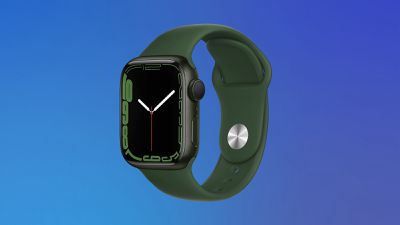
With the Series 7, Apple also changed the design of the Apple Watch, introducing a slimmer casing and smaller bezels. It would be a more modern look for the Apple Watch SE that doesn't steal the design of the Series 11.
The Apple Watch SE will also get the next-generation S11 chip, which will be an improvement over the S8 chip in the current model.
There have been some rumors suggesting the Apple Watch SE 3 could have a colorful plastic casing, but Apple may have scrapped that design.
More on what to expect from the Apple Watch SE 3 can be found in our guide.
AirPods Pro 3
Rumors suggest the AirPods Pro 3 will have an updated form factor, though it's unclear what exactly will change. Given how little we've heard, the earbuds themselves may only feature small design changes.

The AirPods 4 charging case was updated last year, and now it's the AirPods Pro's turn. The AirPods Pro 3 case could be slimmed down, making the AirPods Pro even more pocketable. Apple also removed the pairing button on the AirPods 4 case, adding an invisible capacitive button instead, and the same change is coming to the AirPods Pro. The LED on the AirPods Pro case could also be hidden beneath the surface, so it only shows up when it's on.
Apple is working on a new chip for the AirPods Pro 3 that will result in improved sound quality and better Active Noise Cancellation.
![]()
Apple introduced in-ear heart rate tracking for the Powerbeats Pro 2, and it's a feature that's also expected to extend to the AirPods Pro 3. The AirPods will be able to measure heart rate during workouts. Temperature sensing capabilities are also a possibility.
Apple is working on a Live Translation feature for the AirPods that will provide real-time translations for in-person conversations. The feature will build on the Live Translation options introduced in iOS 26, and it could be announced alongside the AirPods Pro 3.
Cases and Accessories
All of the iPhone 17 models will support Qi 2.2, otherwise known as Qi 25W. The upgraded Qi specification allows for charging at up to 25W with wireless chargers that offer Qi 2.2 support. That means third-party chargers will be able to offer the same 25W charging speeds as MagSafe chargers. You'll need all new hardware to get those speeds, though, as existing Qi 2 chargers are limited to 15W.

There will be the standard silicone cases this year, but Apple is apparently giving fabric cases another go. The "FineWoven" cases from 2023 turned out to be a disaster, but this year's "TechWoven" fabric-style cases are supposedly more durable and better able to stand up to wear and tear.
Cases this year will apparently have small holes at the bottom corners to accommodate a lanyard or a strap.
![]()
Apple has also considered creating a bumper case specifically for the slimmed-down iPhone 17 Air models, providing protection without bulk.
Software Updates
At the event, Apple will let us know when iOS 26, iPadOS 26, macOS Tahoe, tvOS 26, visionOS 26, and watchOS 26 are coming out.
![]()
We'll also get the release candidate updates when the event ends.
Other Possible Product Announcements
There are a few products that are rumored to be coming in 2025 and that may come at the September event or later in the year.
- AirTag 2 - There have been persistent rumors of a second-generation AirTag, and it could come before the end of the year. It's going to have an updated wireless chip that improves range and accuracy, and a louder speaker. So far, we haven't heard anything about design changes.
- Apple TV 4K - The next-generation Apple TV 4K isn't getting major updates, so it could be a minor announcement at the September event. At the same time, it's been long enough since we last had an Apple TV that it could be part of a second fall event or could be introduced via press release later in the year.
- HomePod mini 2 - Apple is working on a new HomePod mini, but we haven't heard much about it except that it'll get an updated Wi-Fi and Bluetooth chip designed by Apple and new colors. It's an ideal candidate for a small mention at the event.
- M5 Apple Vision Pro - There's supposedly a new version of the Vision Pro coming with an updated M5 chip and possibly a space black color option. It won't have any new features besides the faster chip, so tucking it in as a mention at the September event would make sense rather than giving it a dedicated press release.
What Not to Expect
This is Apple's iPhone event, so while there are other products that are rumored to be launching in 2025, we're not expecting to see them.

Here's what's coming later in the year, or 2026:
- M5 iPad Pro - Coming later in 2025
- M5 Macs - Coming in spring 2026
- iPad Air - Slated for spring 2026
- iPad 12 - Likely coming in spring 2026
- Updated Studio Display - Timing unclear, but not expected this year
- iPhone 17e - The iPhone 17e will launch in early 2026, perhaps at a spring event
- Home hub - Coming sometime around early to mid-2026
How to Watch
Apple's "Awe Dropping" event will start at 10:00 a.m. Pacific Time on Tuesday, September 9. Apple will livestream the event on its website on YouTube, and through the Apple TV app on supported devices.
For those unable to watch the livestream, MacRumors will be providing full event coverage on MacRumors.com and the MacRumorsLive Twitter account. We'll also do a much deeper dive into all the announcements after the event.





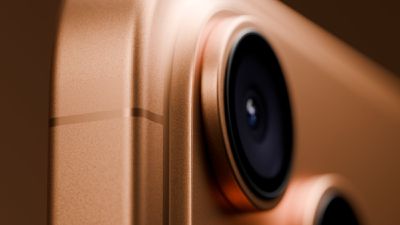




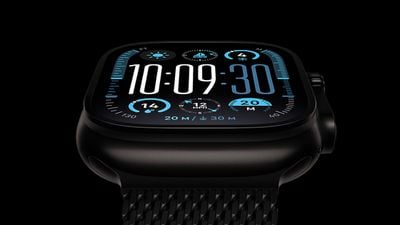


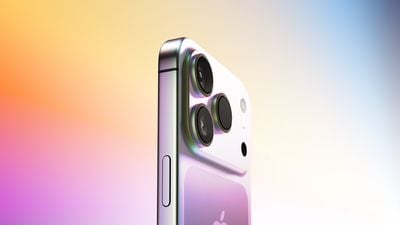



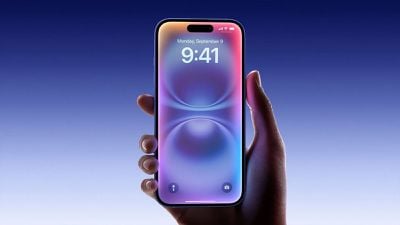







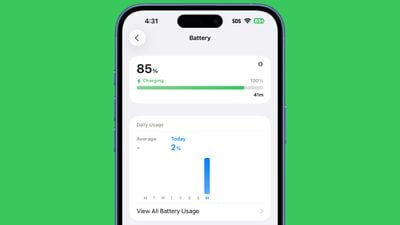




 Vision Pro in Space Black concept
Vision Pro in Space Black concept